Conducting thorough tenant background and credit checks is a critical step in the rental process. It helps landlords and property managers ensure that potential tenants are responsible, reliable, and capable of meeting the financial obligations of renting a property. In this guide, we’ll explore the best practices for conducting these checks, from understanding the purpose of tenant screenings to overcoming common challenges in the process.
Why Tenant Background and Credit Checks Matter
Tenant screening is an essential part of managing rental properties. Not only does it help protect the financial interests of the landlord, but it also ensures the safety and well-being of the community.
Tenant background and credit checks provide insight into a prospective tenant’s past behavior and financial responsibility. A thorough screening process reduces the risks of late payments, property damage, and legal disputes. Without a proper background check, landlords may inadvertently rent to individuals with poor credit histories, criminal records, or evictions, all of which can lead to costly complications down the road.
Key Components of a Tenant Background and Credit Check
A complete tenant background and credit check consists of several key components, each providing valuable information about the applicant’s suitability for tenancy.
1. Credit Report
The credit report is a critical document that provides insights into a tenant’s financial responsibility. It includes information about the tenant’s current credit score, outstanding debts, and payment history. A strong credit report typically indicates that the tenant is likely to pay their rent on time and handle financial obligations responsibly.
- Credit Score: A higher score indicates a better credit history, making the tenant a lower risk for late payments.
- Debt-to-Income Ratio: This ratio assesses the tenant’s monthly income compared to their existing debt. A higher ratio may indicate financial strain.
- Payment History: The credit report shows any missed or late payments, which may indicate poor financial habits.
2. Criminal Background Check
A criminal background check provides important information about whether the tenant has been involved in criminal activity. This is particularly important for landlords concerned about the safety of other tenants or the property itself.
- Criminal History: Check for any convictions or charges, particularly those related to violent crimes, theft, or drug-related offenses.
- Current Legal Standing: Determine if the applicant is currently under investigation or facing charges. This can help assess potential risks to other tenants or the property.
3. Eviction History
Checking an applicant’s eviction history is essential for identifying tenants who may have been evicted in the past due to non-payment or other issues. Landlords should review any prior evictions to understand the circumstances and determine if the tenant may pose a similar risk in the future.
- Eviction Records: A history of evictions, particularly recent ones, may indicate a pattern of unreliable payment or tenant behavior.
- Reason for Eviction: Understanding the reason behind the eviction can help determine whether the tenant is likely to repeat the same issues.
4. Employment and Income Verification
Verifying the tenant’s employment and income is vital for ensuring they can afford the rent. A tenant’s income should be sufficient to cover their rent and other living expenses.
- Employment History: A stable employment history is a good indicator of a reliable tenant.
- Income Verification: Landlords should ask for recent pay stubs, tax returns, or bank statements to confirm the applicant’s income.
Best Practices for Conducting a Comprehensive Tenant Screening
The key to an effective tenant screening process is thoroughness and consistency. Landlords should implement a structured procedure that adheres to legal requirements while protecting their property and investments.
1. Get Written Consent
Before conducting any background checks or credit checks, it’s crucial to get written consent from the prospective tenant. This ensures compliance with privacy laws, such as the Fair Credit Reporting Act (FCRA) in the United States, which mandates that landlords obtain permission before accessing an applicant’s credit information or background.
- Consent Forms: Create a clear and concise consent form that outlines what information will be checked and how it will be used.
- Transparency: Be upfront with applicants about the types of checks you will conduct and the criteria you’ll use to evaluate them.
2. Stay Consistent with Screening Criteria
One of the most important aspects of tenant screening is ensuring consistency. All applicants should be evaluated according to the same criteria to avoid potential discrimination claims. This includes applying the same standards for credit scores, income verification, and criminal background checks across all applicants.
- Standardized Criteria: Develop a set of criteria for tenant approval, including acceptable credit scores, income levels, and criminal history.
- Consistency is Key: Ensure that all applicants are held to the same standards to avoid bias or favoritism.
3. Use a Professional Screening Service
Tenant background and credit checks can be complex and time-consuming. To ensure accuracy and compliance, it’s advisable to use a professional tenant screening service. These services specialize in providing comprehensive background reports that include credit history, criminal records, eviction history, and other relevant information.
- Reputable Services: Choose a reputable screening service that is compliant with federal and state regulations.
- Service Packages: Many tenant screening companies offer packages that bundle credit checks, criminal background checks, and eviction history in one report, making the process more streamlined.
4. Review Reports Carefully
When you receive the background and credit reports, take the time to review them thoroughly. Pay attention to details such as inconsistencies in the tenant’s employment history or any discrepancies between their stated income and the verification documents provided.
- Look for Red Flags: Watch for signs of financial instability, such as frequent late payments, high debt-to-income ratios, or a criminal history that suggests potential risk.
- Consider Explanations: If an applicant has a criminal record or eviction history, consider giving them an opportunity to explain the circumstances. There may be valid reasons for past issues that do not reflect their current behavior.
5. Follow Fair Housing Laws
It’s critical to comply with federal, state, and local fair housing laws when conducting tenant screenings. Discriminating against applicants based on race, color, religion, sex, national origin, familial status, or disability is illegal. Additionally, many states have their own specific laws regarding tenant screenings, so landlords should be familiar with these regulations.
- Avoid Discrimination: Use objective criteria and ensure that screening practices do not discriminate against protected groups.
- Understand Local Regulations: Familiarize yourself with both federal and local tenant screening laws to avoid violations and ensure fair practices.
Common Challenges in Tenant Background and Credit Checks
While tenant screening is an essential process, landlords often face challenges when conducting background and credit checks. Here are some of the most common issues and how to address them:
1. Incomplete or Inaccurate Information
Applicants may provide incomplete or inaccurate information on their rental applications. This can make it difficult to conduct thorough background checks and may delay the approval process.
- Verify Information: Always verify the information provided by applicants, including employment, income, and previous rental history.
- Contact References: Contact the applicant’s previous landlords or employers to confirm their rental history and employment status.
2. Difficulty Accessing Tenant Reports
Sometimes landlords may encounter issues accessing tenant background checks or credit reports, especially if the tenant has a history of frequent address changes or a lack of a stable financial history.
- Work with Screening Services: Choose a screening service that offers assistance in obtaining hard-to-find background or credit information.
- Stay Patient: Understand that accessing certain information, especially for tenants with complex histories, may take time. Be patient and communicate delays to applicants.
3. Handling Applicants with Poor Credit or Criminal History
Some applicants may have poor credit scores or a criminal history, which could pose a challenge in the tenant approval process. However, it’s important to approach these situations with a clear, consistent policy.
- Set Clear Guidelines: Set guidelines for how you will handle applicants with poor credit or criminal records, such as requiring a higher deposit or offering a co-signer option.
- Offer a Fair Chance: Consider the context of any issues, such as how long ago a criminal conviction occurred or the applicant’s current financial situation.

Get a Free Rental Analysis
Want to know how much your home will rent for? We’ll send you a free rental report!
Addressing Challenges in Tenant Screening and Overcoming Common Pitfalls
Tenant screening is not without its challenges. While having a structured process in place can mitigate many issues, it’s essential to be prepared for complications that may arise during the tenant background and credit check process. Here are some common pitfalls landlords and property managers face, along with practical solutions for overcoming them.
1. Managing Applicant Discrepancies
One of the most frequent issues landlords face during the screening process is discrepancies between what the applicant claims on their application and the information provided in their background and credit reports. These inconsistencies can lead to difficult decisions and delays.
- Clarify and Confirm: When discrepancies arise, it’s essential to contact the applicant for clarification. For example, if their employment history doesn’t match what they’ve listed, request additional documentation or a reference from their employer to verify the details.
- Establish Clear Guidelines for Inconsistencies: Make it clear in your tenant screening criteria how discrepancies will be handled. If an applicant’s history raises questions, determine beforehand whether these discrepancies will be deal-breakers or if you are open to reviewing extenuating circumstances.
2. Tenant Screening Delays
Tenant screening can sometimes take longer than anticipated, particularly if the applicant has an unconventional financial background or criminal history. Delays in processing background checks can lead to frustration for both landlords and applicants.
- Set Expectations Early: Communicate the expected time frame for tenant screening with applicants at the beginning of the process. This way, both parties are aware of the potential wait time.
- Use Fast and Efficient Screening Services: Partnering with a tenant screening service that provides quick turnaround times can help alleviate delays. Make sure the service is thorough but also efficient in delivering comprehensive reports promptly.
3. Navigating Tenant Privacy and Legal Considerations
When conducting background and credit checks, landlords must comply with various laws and regulations designed to protect tenant privacy. Violating privacy laws, such as the Fair Credit Reporting Act (FCRA), can lead to significant legal ramifications.
- Obtain Proper Consent: Always ensure that the applicant has signed a consent form before conducting any checks. This form should explicitly state what will be checked and how the information will be used. Make sure to follow up with the applicant for any missing signatures or details.
- Avoid Using Information Improperly: Do not use information gathered from tenant background checks to discriminate or make decisions based on factors unrelated to the rental agreement. For example, while it’s legal to use a credit report to evaluate a tenant’s ability to pay rent, it’s illegal to consider other personal details, such as marital status, that may not be relevant to the application.
4. Dealing with Applicants Who Have Poor Credit Scores
One of the most challenging aspects of tenant background checks is dealing with applicants who have poor credit scores. Many landlords worry that tenants with low credit scores will be unable to pay rent on time or manage their financial obligations responsibly.
- Evaluate the Full Picture: While a poor credit score can be a red flag, it’s important to assess the entire financial picture. Look for other indicators, such as stable income, a good rental history, and a lack of recent evictions. If the applicant’s credit score is low due to extenuating circumstances, such as medical bills or a temporary financial setback, consider working with them.
- Offer Solutions: For applicants with poor credit but otherwise promising qualities, consider offering alternatives. For example, you could ask for a larger security deposit or a co-signer to mitigate the risks. This gives you more flexibility while still protecting your property.
5. Handling Criminal Background Checks
Criminal background checks are a crucial component of tenant screening, particularly for ensuring the safety of other tenants. However, navigating this process can be tricky, especially when dealing with applicants who have criminal records.
- Follow the Law Regarding Criminal Records: In many areas, landlords are prohibited from automatically rejecting applicants based solely on a criminal history. For example, the Fair Housing Act prohibits blanket bans on applicants with criminal records, as long as their convictions are not directly related to safety or property concerns. Be aware of your state or local laws regarding criminal history and how it can be used in the screening process.
- Assess the Nature of the Offense: If an applicant has a criminal history, consider the nature of the offense, how long ago it occurred, and whether the applicant has demonstrated any effort to rehabilitate. For example, a conviction for a non-violent offense that happened years ago may not be as concerning as a recent violent crime conviction.
Best Practices for Tenant Screening Communication
Effective communication is essential when conducting tenant background and credit checks. Clear and timely communication can improve the experience for both the landlord and the prospective tenant, and it ensures compliance with legal standards. Here are some best practices for communicating during the tenant screening process.
1. Transparent Application Process
Make sure the tenant application process is transparent and clear. Provide applicants with detailed information on what the screening process will entail and what documents or information they’ll need to submit. This transparency helps applicants prepare and understand the expectations.
- Create a Checklist: Provide applicants with a checklist that outlines the documents they’ll need for the application. This should include identification, proof of income, references, and consent forms for background checks.
- Explain the Timeline: Let the applicant know what to expect at each stage of the process, including how long background checks may take and when they can expect to hear back regarding the decision.
2. Keep Applicants Informed
Throughout the screening process, keep applicants informed about the status of their application. Regular updates can help prevent frustration and reduce the number of inquiries you receive. Let them know if there are any delays or issues with their application.
- Provide Clear Communication: If there are delays or complications, be honest and transparent with the applicant. For instance, if a background check is taking longer than expected, let the applicant know and provide an updated time frame.
- Offer Feedback: If the application is rejected based on the background or credit check, consider offering feedback to the applicant. While this is not required, it can help build goodwill and give the applicant a chance to explain any extenuating circumstances.
3. Respect Privacy Laws
When communicating with applicants about their background and credit checks, respect privacy laws at all times. Avoid sharing personal information unnecessarily and only disclose details that are directly relevant to the application process.
- Confidentiality: Ensure that all communication, whether by email, phone, or in person, is conducted in a manner that protects the privacy of the applicant. Only share information with authorized personnel, such as property management staff or legal advisors.
- Secure Data Handling: Ensure that all tenant information, including credit reports and criminal background details, is stored securely. Follow best practices for data security to prevent breaches and protect applicant privacy.
The Importance of Consistent Documentation and Record-Keeping
Documenting every step of the tenant screening process is crucial for both legal compliance and organizational efficiency. Proper record-keeping ensures that you can easily reference any decisions made during the process and defend your decisions if needed.
1. Maintain Detailed Records
Keep a record of all tenant applications, background checks, credit reports, and any correspondence related to the screening process. These records are essential in case of a legal dispute or if an applicant questions why they were not selected.
- Track Communication: Keep records of all communication with applicants, including phone calls, emails, and formal notices. Documenting your interactions helps protect you in case an applicant claims that they were discriminated against or unfairly treated.
- Store Documents Securely: Use a secure system for storing tenant screening records, whether digital or paper. Ensure that documents are only accessible to authorized personnel to prevent unauthorized access.
2. Be Prepared for Audits
In some cases, you may be required to provide evidence of your tenant screening practices for compliance purposes, such as during an audit by a regulatory body or a legal case. Proper documentation ensures you’re prepared to defend your practices if needed.
- Create a Tenant Screening File: For each applicant, maintain a file that includes all relevant documents, including the tenant application, consent forms, background and credit check results, and any communications with the applicant.
- Regularly Review and Update Practices: Periodically review your tenant screening practices and documentation procedures to ensure that they are compliant with the latest laws and best practices.

Advanced Tips for Optimizing Tenant Background and Credit Checks
While the basics of tenant screening are critical, landlords can further refine their processes to ensure that they are consistently making the best decisions. By leveraging technology, establishing best practices, and maintaining flexibility, landlords can enhance their tenant screening processes and improve their ability to manage risks effectively.
1. Leverage Technology to Streamline the Process
Using technology can save time and reduce errors in tenant screening. Today, many online services offer comprehensive, automated tenant background checks that provide detailed reports instantly. These tools can help streamline the process and improve your ability to make well-informed decisions.
- Automated Screening Services: Consider subscribing to a tenant screening service that automatically compiles background checks, including criminal history, eviction records, and credit scores. These tools often allow landlords to access the information in real time, which can speed up the application process significantly.
- Customizable Criteria: Many services allow you to set specific criteria for screening applicants, ensuring that you only receive reports that are relevant to your needs. For example, you can set specific income-to-rent ratios, required credit scores, or minimum rental history length.
- Online Applications: Allow tenants to submit applications online. Not only does this help reduce administrative work, but it also makes it easier to track applicants, ensure they submit the required documents, and eliminate any issues related to lost or incomplete paperwork.
2. Establish a Clear and Consistent Screening Policy
A well-defined screening policy is essential for ensuring consistency and fairness throughout the process. This policy should outline all of the criteria that will be used to evaluate potential tenants, including income levels, credit score thresholds, and criminal history guidelines.
- Standardize the Process: Set clear guidelines for evaluating each applicant. For example, you may choose to only approve applicants who meet a certain credit score and income-to-rent ratio. By applying the same standards to all applicants, you ensure fairness and reduce the likelihood of discrimination claims.
- Document the Policy: Keep a written version of your tenant screening policy and make it available to applicants if requested. Transparency is crucial in establishing trust with applicants and ensuring that your screening process is legally sound.
- Review and Update Regularly: Periodically review your tenant screening policy to ensure it is still relevant. Changes in the market, laws, or business needs may require updates to your screening criteria. Additionally, remain aware of any legal changes that could affect the way you assess tenants.
3. Understanding the Legal Landscape
It’s crucial for landlords to stay informed about tenant screening laws to ensure that they are compliant and to avoid legal pitfalls. In addition to local and state regulations, federal laws such as the Fair Housing Act and the Fair Credit Reporting Act (FCRA) set specific requirements for how tenant background checks must be handled.
- Fair Housing Act Compliance: Ensure that your tenant screening criteria are consistent with the Fair Housing Act, which prohibits discrimination based on race, color, religion, sex, disability, familial status, or national origin. For example, avoid using discriminatory language in advertisements or turning away applicants based on characteristics that are protected by law.
- FCRA Compliance: Under the FCRA, landlords must notify applicants if they plan to use a background or credit check in the decision-making process. If the decision is made based on information in the background check, applicants must be provided with a notice that includes the reason for the decision.
- Ban-the-Box Laws: In some states and cities, “ban-the-box” laws prohibit landlords from inquiring about an applicant’s criminal history until later in the process. Ensure you understand local laws about how and when criminal records can be considered during tenant screening.
4. Utilize References and Personal Interviews
While background checks are an essential part of tenant screening, personal references and interviews can provide valuable insights into a potential tenant’s reliability. These additional steps can help you make a more informed decision.
- Reference Checks: Contact the applicant’s current or past landlords to get a sense of their rental history. Ask about their payment history, whether they followed lease terms, and if they were respectful of the property. References from employers or colleagues can also help assess the applicant’s character and stability.
- Conduct an Interview: Whenever possible, conduct a brief interview with the applicant. While this step can be time-consuming, it can offer a better sense of the applicant’s personality and suitability for your property. Pay attention to how they present themselves, whether they are prompt in communication, and how well they respond to your questions.
- Ask for More Information: If an applicant has issues such as a criminal history or poor credit score, ask them to explain their situation. In some cases, applicants may provide context that mitigates concerns. For example, they might explain that a late payment was due to a temporary financial hardship or that a criminal conviction occurred many years ago.
5. Building a Relationship with Tenants
Tenant background and credit checks are essential to protecting your property and managing risk, but maintaining positive relationships with tenants is equally important. Happy, reliable tenants are more likely to take care of your property and pay rent on time, so it’s worth building a strong rapport with them throughout the screening process.
- Clear Communication: Be transparent with applicants about your expectations and the screening process. If you need additional information or clarification, ask for it promptly, and let applicants know the timeline for a decision.
- Respect for Privacy: Ensure that you handle all tenant information with the utmost respect for privacy. Securely store any personal data you collect and avoid disclosing details to anyone who is not directly involved in the screening process.
- Flexibility and Understanding: While it’s essential to have clear screening criteria, try to remain flexible when possible. If a tenant has a minor issue on their background report but otherwise appears to be a good fit for your property, consider working with them. Offering solutions such as a higher deposit or a co-signer can help you balance risk while still providing opportunities for applicants.
6. Handling Rejections
Even with a thorough screening process, not all applicants will meet your criteria. Rejection is part of the process, but handling it professionally and respectfully is essential for maintaining a good reputation as a landlord.
- Notify Applicants Promptly: If you decide not to proceed with an application, notify the applicant promptly and explain the reason for the rejection. According to the FCRA, you are required to provide applicants with a written notice if their application is denied due to information from a background or credit check.
- Provide Constructive Feedback: While not legally required, offering feedback can help applicants understand why they were rejected. For example, you might explain that the decision was based on their credit score or criminal history. This can also build goodwill and leave the door open for future applications.
- Be Consistent: Apply your tenant screening criteria consistently across all applicants. This helps ensure that no applicant is unfairly treated and protects you from discrimination claims.
A Comprehensive Approach to Tenant Screening
Conducting thorough tenant background and credit checks is one of the most important aspects of property management. It ensures that you select responsible tenants who will take care of your property and pay rent on time. By implementing best practices, leveraging technology, staying informed about legal requirements, and maintaining open communication, landlords can improve the screening process and reduce the risk of tenant-related issues.
Remember, tenant screening is not a one-size-fits-all approach. While having a consistent process in place is essential, landlords must also be flexible and consider the full context of each applicant. By following the strategies outlined in this guide and maintaining a fair, transparent approach, you can make informed decisions that benefit both you and your tenants.



